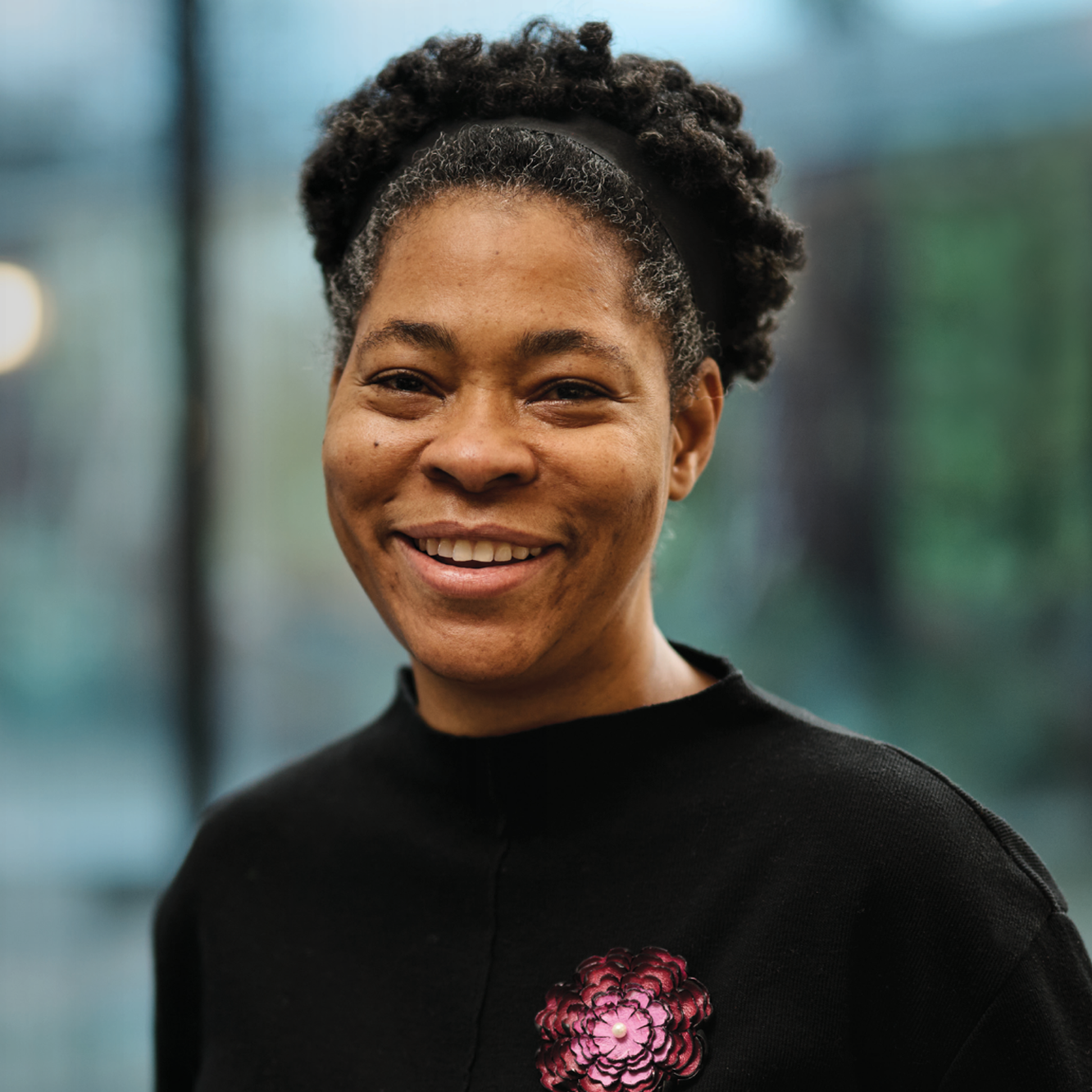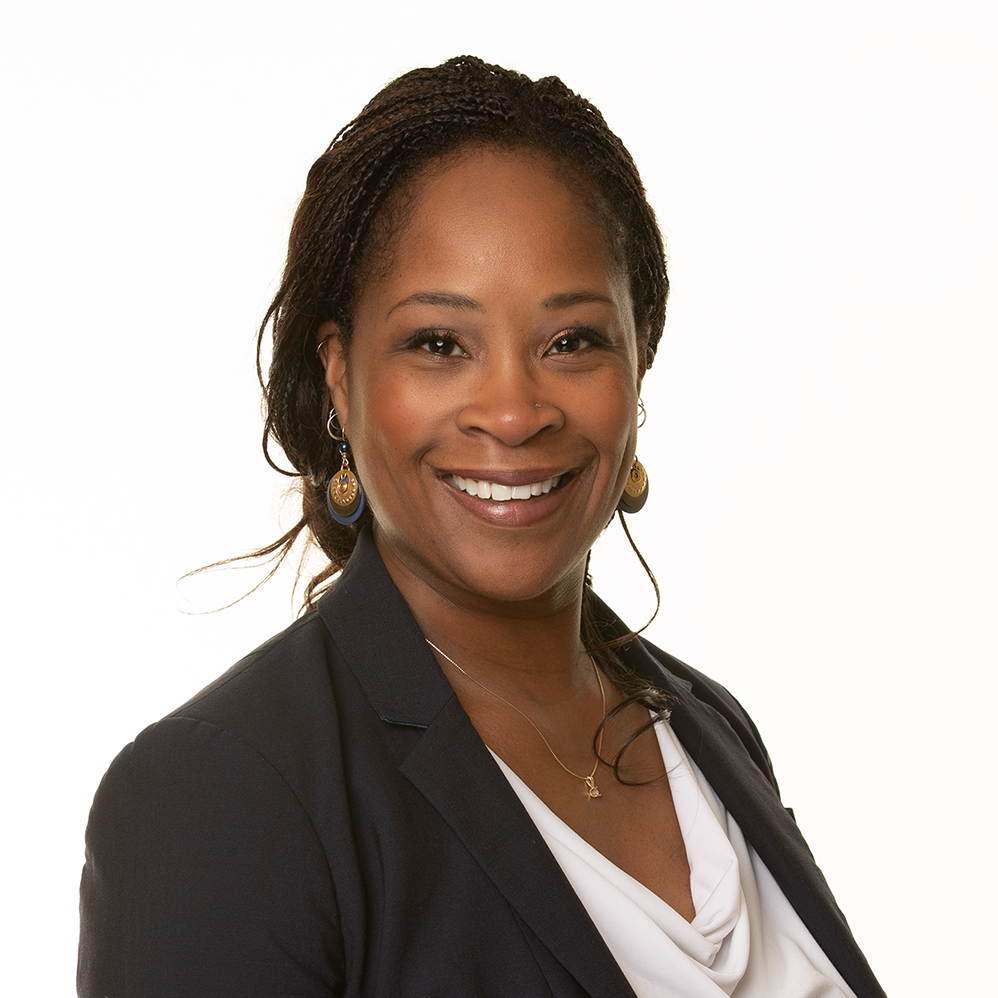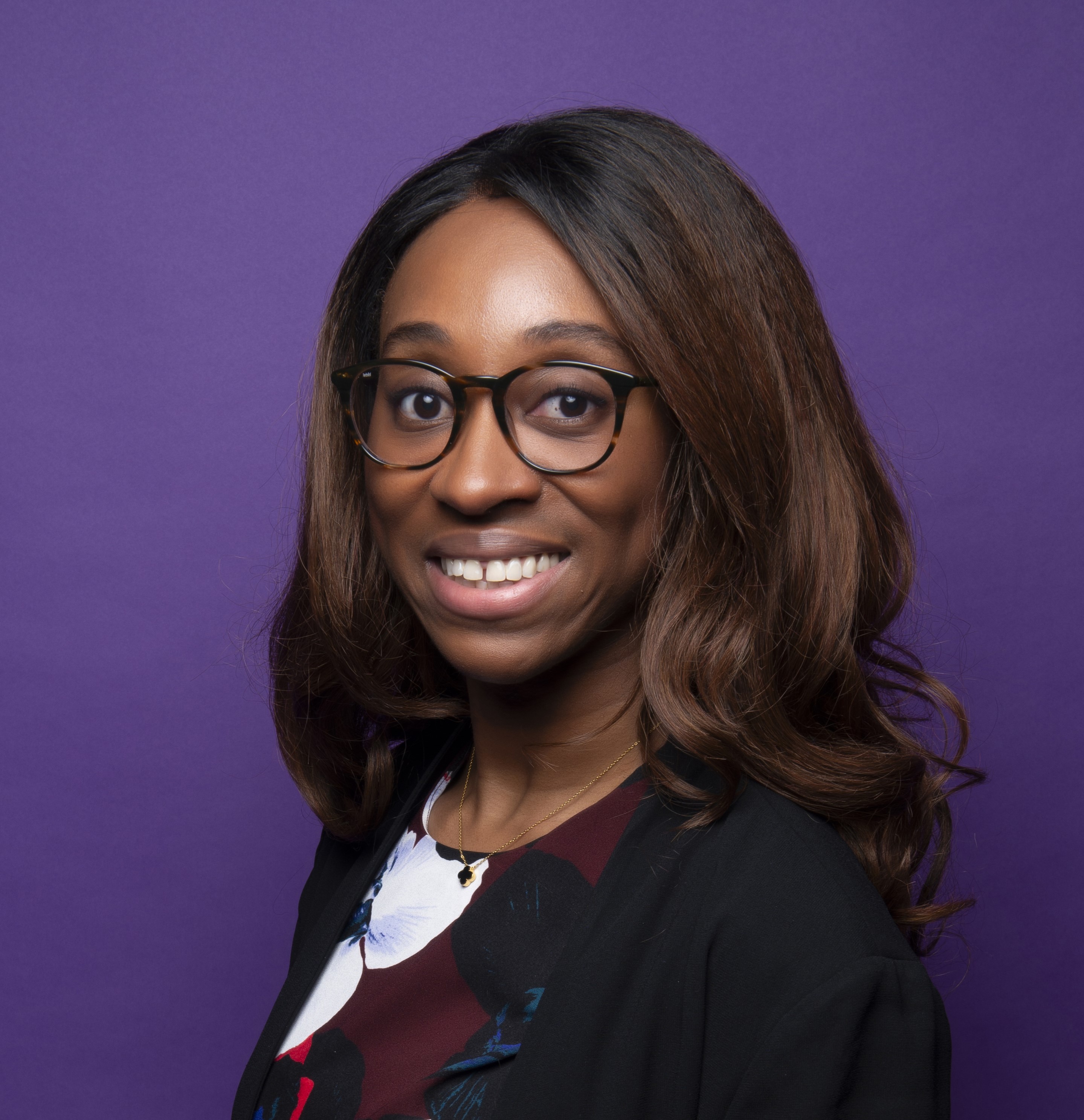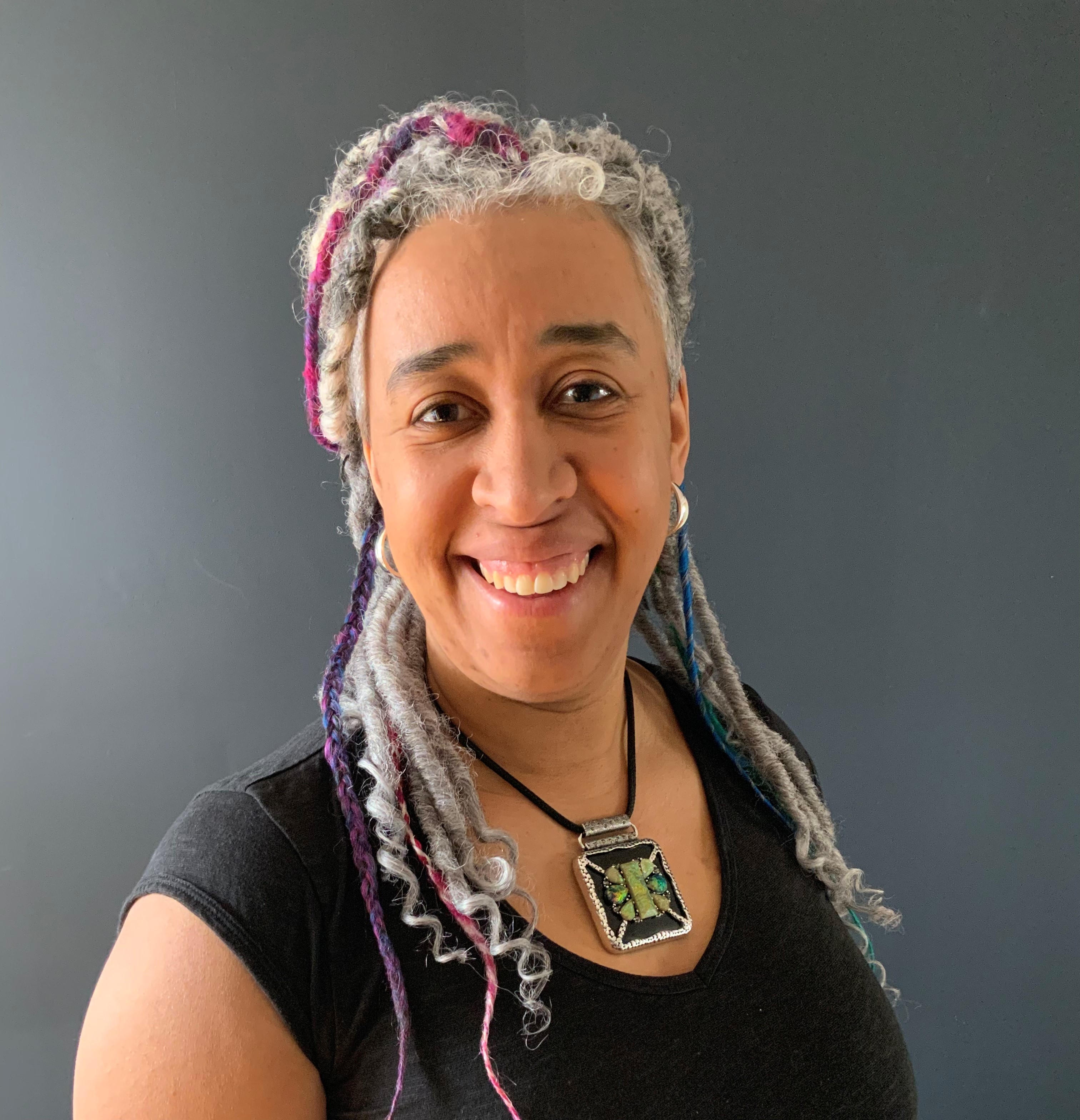We are bent and buckled, but never broken
Posted on February 20, 2025 by the Canadian Paediatric Society | Permalink
Topic(s): Advocacy, Antiracism, Paediatric practice
Dr. Natasha Johnson is the first Black paediatrician elected Vice President of the Canadian Paediatric Society in its 100-year history. We are grateful to her for sharing these voices of her colleagues from across the country, collected during the COVID-19 pandemic, and to each of the women for their honesty, wisdom, strength and perseverance.
We are daughters, mothers, wives, fiancés, ex-wives, single beauties, sisters, paediatricians, and we are Black. We strive for excellence in our professional and personal lives. Five people who share a common experience across the country without having ever met all together before the pandemic. In that moment when the Zoom screen opened up, there was instant familiarity amongst the five Black bodies—beautifully different shades, different “dos” and different faces. Unable to be physically together due to COVID, our conversation spanned clinical care updates, personal stories, shared experiences. It was a safe space to be Black and to talk about being Black. It was community. From these conversations grew this collective group of writings called We are bent and buckled but never broken, with topics as varied as our skin but as deep as our identities.

The Path to Promotion
Dr. Sharon Smile, developmental paediatrician
Representation and diversity are important in creating a competitive and innovative workforce. In Canada, 4.5% of the population identifies as Black, and only 1.5% of its physicians are, with even poorer representation in our medical leadership and research ecosystem. Barriers to promotion in academic medicine faced by Black physicians coupled with gender disparities create a double challenge for Black female physicians. I am acutely aware of my presence in this space as a beacon for others. Without the mentorship that is key to career advancement, Black physicians are faced with isolation, invisibility, and unconscious or conscious exclusion from academic enhancing opportunities. Racialized faculty are often overloaded with “low status” and unrewarding additional responsibilities, leaving little time for roles that can support academic growth and promotion—one version of the “minority tax.” The burden of the minority tax needs to be addressed to eliminate promotion disparities. Additional necessary changes include access to mentorship; equitable access to academic enhancing opportunities; and a promotional system that truly rewards EDI or anti-racism, anti-oppression work (for example: clinical initiatives, faculty development, quality improvement, advocacy, and educational activities). I am calling attention to the fact that our merit is often overlooked, dismissed, or minimized. Continuing the status quo limits meaningful contributions to our academic medical ecosystem with the loss of creative, innovative ideas from those whose voices are not heard. Staying silent feeds the status quo. As such, let us raise our voices, commit to dismantling the ingrained structural issues which drive promotion disparities. It starts with me.

The paradoxical experience of a Black female physician
Dr. Natasha Johnson, paediatrician and adolescent medicine specialist
“Invisible yet hyper-visible.” This paradoxical description encapsulates my experience as a Black female physician in Canada. As a physician leader, I am privileged in many ways. At the same time, I am often the only or one of the few Black people in my class, on my team, in my field, or my specialty. This has been an isolating experience at times—particularly following egregious racist events. Many times over my career, I arrived at work traumatized by the news of yet another Black man or boy gunned down, sometimes for the “crime” of simply existing. Painfully aware of the angry Black woman trope, even in the face of overt discriminatory behaviours and microaggressions, I have for many years rode the edge of what Dr. Raymond Givens describes as “the narrow passage between Scylla and Charybdis”—the sweet spot between being too quiet and too intimidating to people who are conditioned to see people who look like me as a threat. As he further explains, “We are allowed to speak of our anguish but not our anger. We can discuss racial bias, but only the ‘unconscious’ or implicit variety.” Like Tyrone Edwards (The Social, May 28, 2020), I refuse to let my hurt become hate. I refuse to let my fear silence me. At times, I am indeed an angry Black woman. Based on the data, I should be. We should all be. Angry does not have to be vengeful or hateful. I will share my pain and outrage in a way that is rooted in love. Reconstruction of our racist systems require this.
Someday this will be in the past
Dr. Tatiana Sotindjo, paadiatrician and adolescent medicine specialist
Right now, I know there is still room for improvement, opportunities for growth and acknowledgement of the history that has led to the current situation. I also know with the depth of courage and solidarity gleaned from these moments together I can look ahead. I know one day I will stare into the eyes of children, medical students and colleagues, baffled that some of the above-mentioned challenges ever existed. Someday—one day—I am confident I will speak of these lived experiences and relish the alienation of speaking of truths that are mere relics of the past. They will be as foreign and antiquated as bloodletting, rampant scurvy and surgery without anesthetics. Right now, I know that to sustain this confidence and foresight I need to connect again and again with these women and allied colleagues for guidance, for hope and accountability. When they speak, I want to not just hear but to listen as if the health and humanity of every individual Canadian of who identifies as being of African, Caribbean, Black ancestry depends on it. Will you join me?

Reflections
Dr. Ewurabena Simpson, paediatric hematologist/oncologist
There are no physicians in my family but when I was growing up, I was deeply inspired by the role models around me. My parents are scientists who encouraged me to be curious and made my dreams feel tangible. My paediatrician was a close family friend within our Ghanaian-Canadian community whose kindness and intellect motivated me to pursue medicine. I was further surrounded by aunties and uncles who also supported and pushed me towards these goals. In these earliest role models, I saw parts of myself through our shared values, challenges and experiences. I never really thought about the fact that they were also Black and how this seemingly simple fact so heavily impacted my career path.
Although I was always the only or one of the few Black students in my classes from primary school all the way into undergrad, I never felt as alone as I did when I entered medical school. As the only Black student in my class of 133, I always stood out. When I sat in my classes and wrote my exams, I felt an unspoken pressure of being “the Black ambassador” for my cohort. When I mingled with my classmates and learned about medicine and pathology in mostly white patients, it often felt like I did not belong. When I looked at my teachers and my clinical preceptors, there was a clear and disheartening scarcity of Black faculty who could lessen my feelings of imposterism. The most powerful lessons that I took from these disparities came when I worked with patients. Through a quiet acceptance of racial stereotyping and bias, my clinical rotations taught me that Black patients are too often treated differently. The funny thing was that although I did not see myself reflected in my classmates or in my teachers, I finally saw a part of myself in these Black patients. This realization bolstered me and inspired me to be part of the change to uncouple the impacts of racism and bias from medical training and care.

Listen
Dr. Kassia Johnson, developmental paediatrician
Listen.
Listen to my voice.
Close your eyes and stop your thoughts.
I realize I am too white to be Black and too Black to be white.
The world has told me I don’t belong, I shouldn’t be here, I don’t fit in.
Listen.
When you tell me I can’t do it, I will.
When you tell me I'm not right, I will prove you wrong.
But I am tired of the fight and dialogue.
Believe that there are things that you can’t see that I feel.
Understand that it is everywhere, constant and always.
It has not been a part of your experience but it is my lived experience.
Listen.
When you call me “girl” I will not answer.
When you tell me to speak I will be silent.
When you tell me who I am or how I should behave, I will not comply.
I am angry, I get upset because I know who I am, you do not.
Stop and listen to what you can’t hear instead of listening to what you see.
You’re not my master and I am not your slave even though history and society still support that idea.
Understand that I don’t have to prove who I am but you need to understand who you are.
Listen.
I will speak the truth even when it is uncomfortable.
I will do this for myself, for my family, for my community and for the greater good.
So stand up, be a part of the ocean of change that is needed to wash away the hate that has built this world.
I am strong. I am resilient. I am Black & White. I am me.
Copyright
The Canadian Paediatric Society holds copyright on all information we publish on this blog. For complete details, read our Copyright Policy.
Disclaimer
The information on this blog should not be used as a substitute for medical care and advice. The views of blog writers do not necessarily represent the views of the Canadian Paediatric Society.
Last updated: Sep 16, 2025
